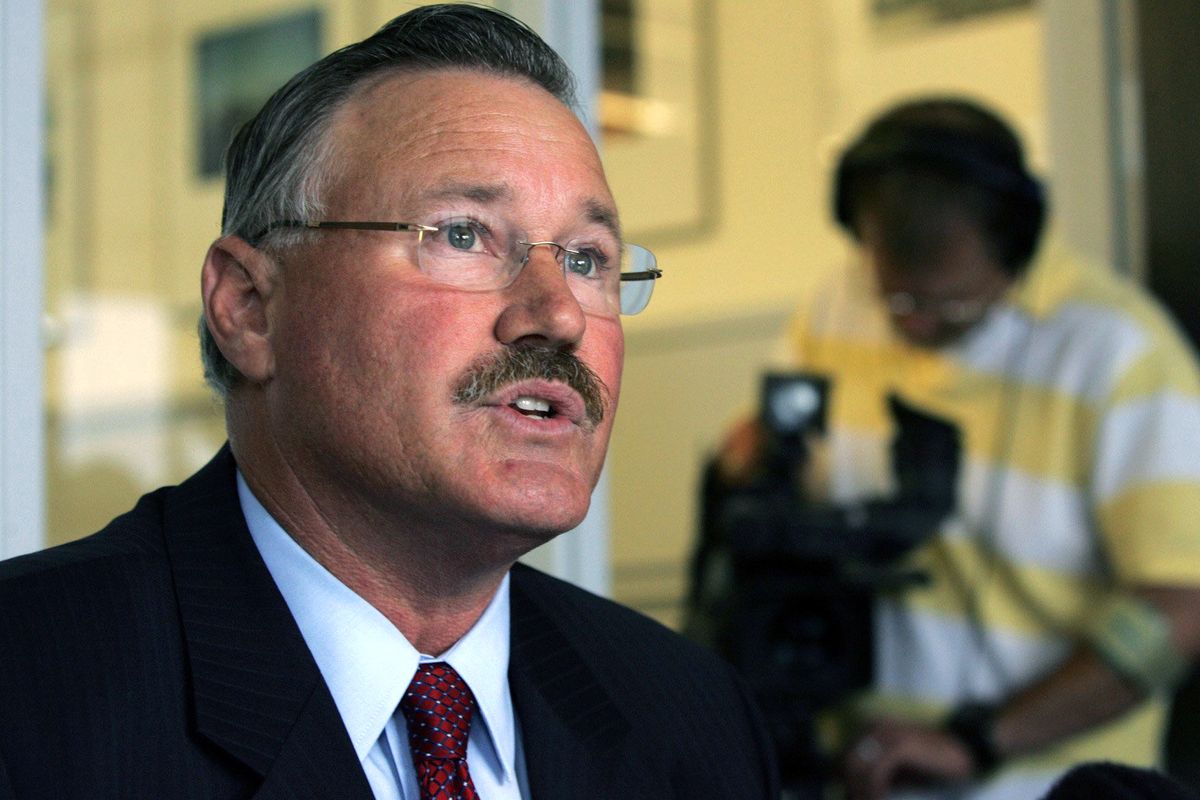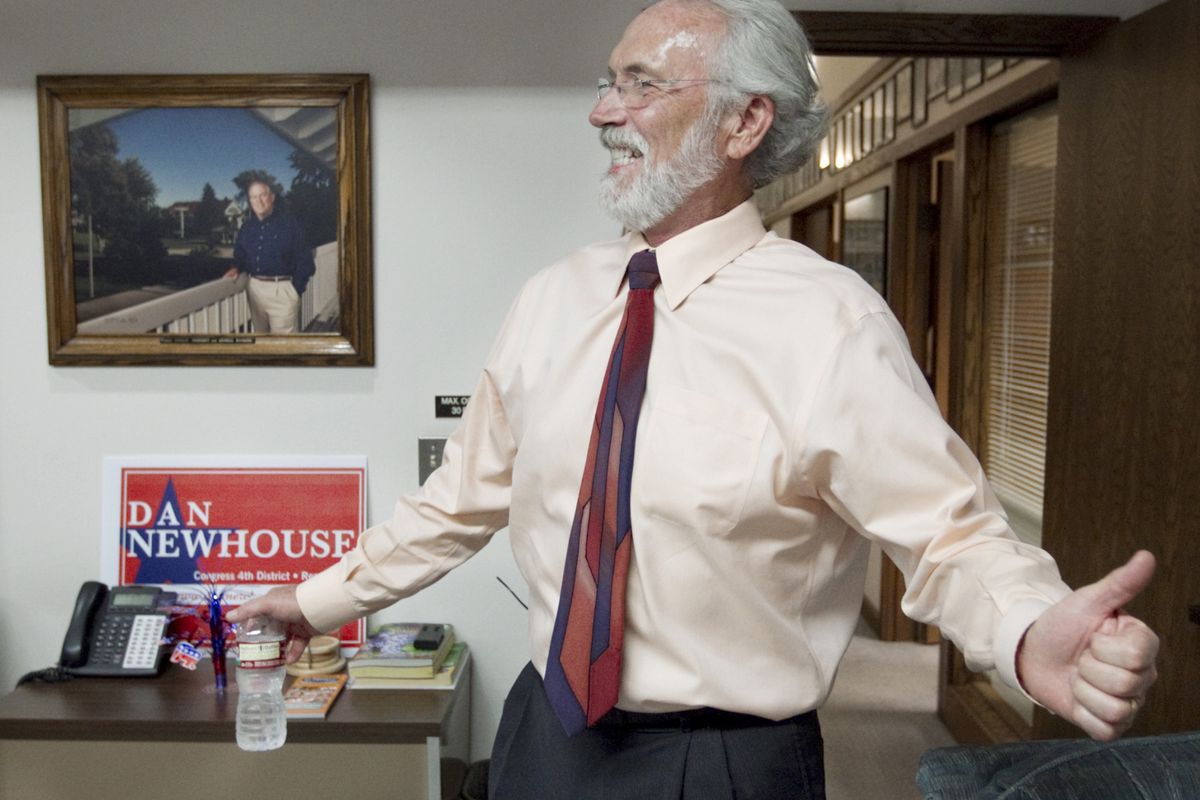Didier-Newhouse race a GOP face-off
Didier
Of Washington’s 10 congressional races this year, nine are relatively tame affairs with incumbents holding significant leads in campaign cash and comfortable cushions in the polls.
And then there’s Central Washington’s 4th District, a Republican-on-Republican slugfest that some see as a fight between populist tea party insurgents and pragmatic business establishment for the soul of the GOP.
The tea party wing is personified by Clint Didier, Eltopia farmer, former NFL player, and unsuccessful candidate for both U.S. Senate in 2010 and for state lands commissioner in 2012. He has the backing of former vice presidential candidate Sarah Palin as well as former and perhaps future presidential candidate Sen. Rick Santorum. He also collected compliments from radio host Glenn Beck. As of his last report to the Federal Elections Commission, he’d raised some $466,000 from individuals with about three-fourths of the listed addresses in Washington.
The establishment is personified by Dan Newhouse, Yakima farmer, former state legislator and former state agriculture director. He is the son of longtime legislator Irv Newhouse, and last year he was a spokesman against a failed ballot initiative that would have required foods with genetically modified products to say so on their label. His FEC reports show about $650,000 in individual contributions, with almost 95 percent of the listed addresses from Washington. But Newhouse also has nearly a quarter-million dollars from political action committees representing interests as varied as agriculture and aerospace, medicine and energy, most of them from national offices outside the state.
He also has the endorsement of the seat’s current occupant, 10-term Rep. Richard Doc Hastings, and support from Washington’s Future, an independent group that lately spent some $50,000 on ads blasting Didier as an extremist, with money from former three-term U.S. Sen. Slade Gorton and timber magnate George Weyerhaeuser.
Didier has backing from independent groups as well: the conservative super PAC FreedomWorks for America, which advocates for smaller government, and America Inc., which stresses American exceptionalism, Judeo-Christian values and limited government. He also has recent support from Blitz PAC/Washington Redskins PAC, a group that has so far not registered with the Federal Elections Commission but says on its website it is opposed to changing the name of Didier’s former team and is out to “blitz the opponents of fiscal conservatives.”
It accuses Newhouse of being aligned with the “Seattle and Bellevue political elites.” That’s not surprising in a race where Didier supporters accuse Newhouse of being a RINO, or Republican In Name Only, and Newhouse supporters accuse Didier of being an extremist.
The campaign has played out at forums across the mainly agricultural district, with a brief detour into federal court. Didier accused Newhouse and one of his supporters, state Potato Commission Executive Director Chris Voigt, of violating state laws for using commission email and possibly a car to boost the campaign. After a hearing in Spokane in mid-October, Newhouse was removed as a plaintiff and Didier eventually dropped the suit before sworn statements were taken.
Newhouse recently filed a complaint with the FEC that one of his opponent’s television commercials didn’t carry the requisite “I’m Clint Didier and I approve this message” signoff.
On issues, the two have some agreement. Both oppose and would like to end the Affordable Care Act, or Obamacare, although Newhouse has said he’d replace it with a Republican alternative and Didier would get the federal government completely out of health insurance.
Both want budget cuts, although Didier would do away with some agencies like the Department of Education and Newhouse would push for a balanced budget amendment and supports across-the-board cuts to lower spending. Despite their aversion to federal spending, both would continue cleanup work at the Hanford Nuclear Reservation, where federal programs have made the district among the top in the nation for receiving government money.
Both oppose abortion and say they are “pro-life.” Both oppose same-sex marriage, which failed in the district even though it passed statewide in 2012, but Didier goes further in his condemnation. “When we legally recognize the right of individuals to live freely outside the institution of marriage, we weaken the traditional family unit headed by a husband and wife, which undermines the very cornerstone of our society,” he says on his website.
Both oppose gun control and stress their support of the Second Amendment. Newhouse has the endorsement of the National Rifle Association while Didier has support from the National Association for Gun Rights.
Both want a more secure U.S. border and a guest worker program that provides labor vital to the district’s farming operations, and neither supports “amnesty” for undocumented immigrants, although Newhouse would give some a chance to apply for citizenship, if they have clean criminal records, learn English, pay taxes and a penalty. Didier contends the border is so porous that ISIS could sneak through.
The race is the first congressional contest in the state that pits Republicans against each other. That’s possible with the state’s 10-year-old primary system that sends the top two vote-getters to the general regardless of primary. But it has never happened in a federal race.
Didier topped that primary with 32 percent of the vote, and Newhouse’s 25 percent was more than twice that of leading Democrat Estakio Beltran. Although Republicans control all of the district’s legislative seats and most of its county offices, Democrats could decide a close race if they coalesce behind either Didier or Newhouse.

